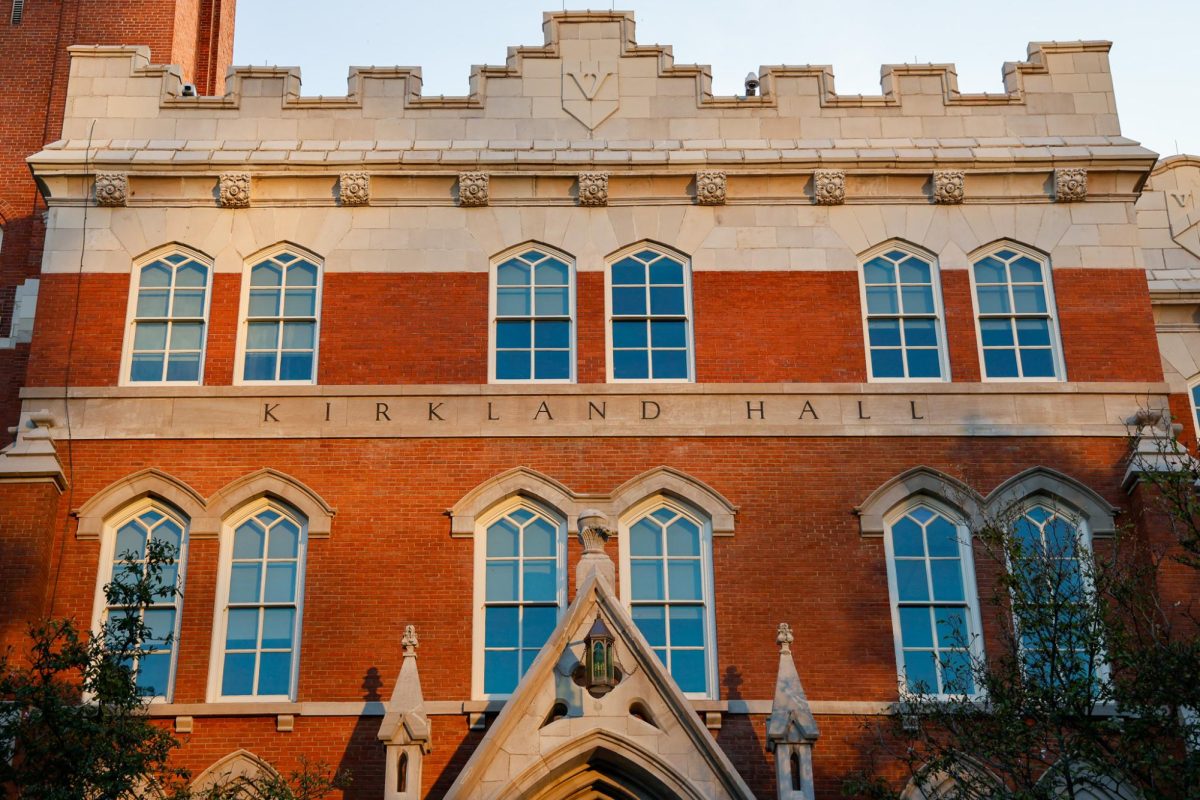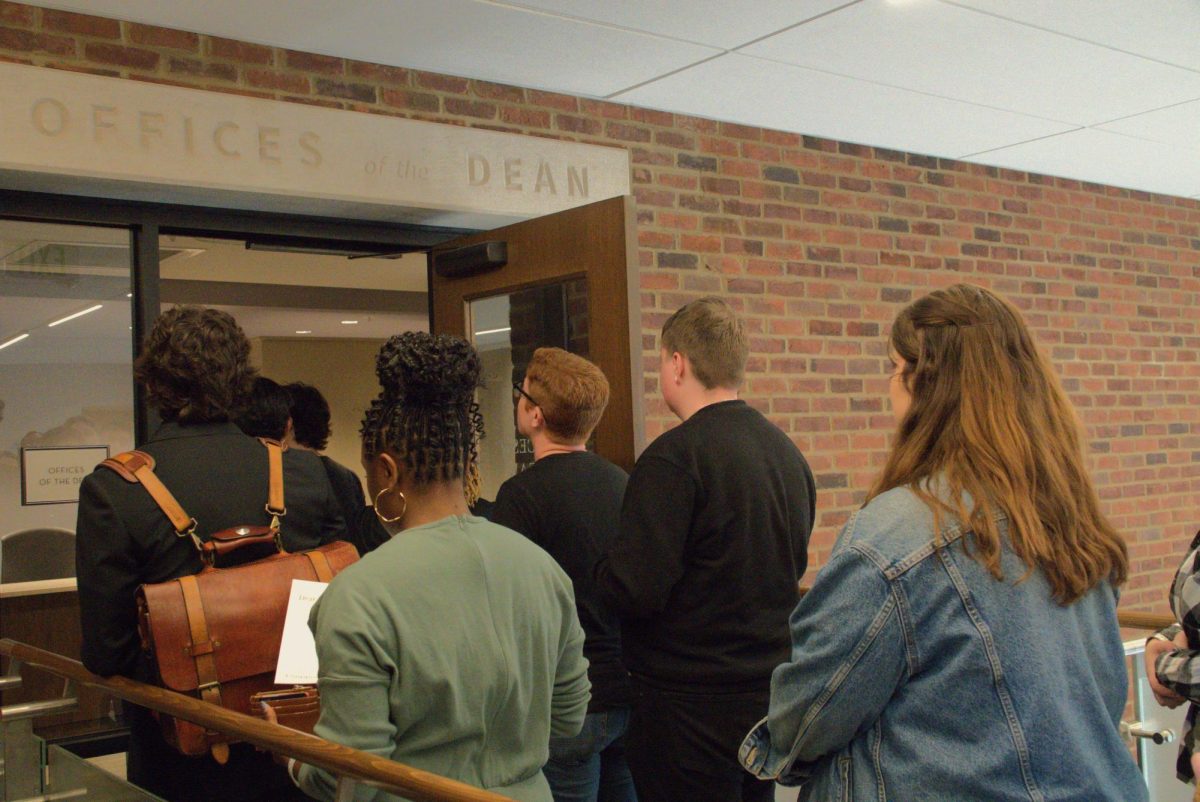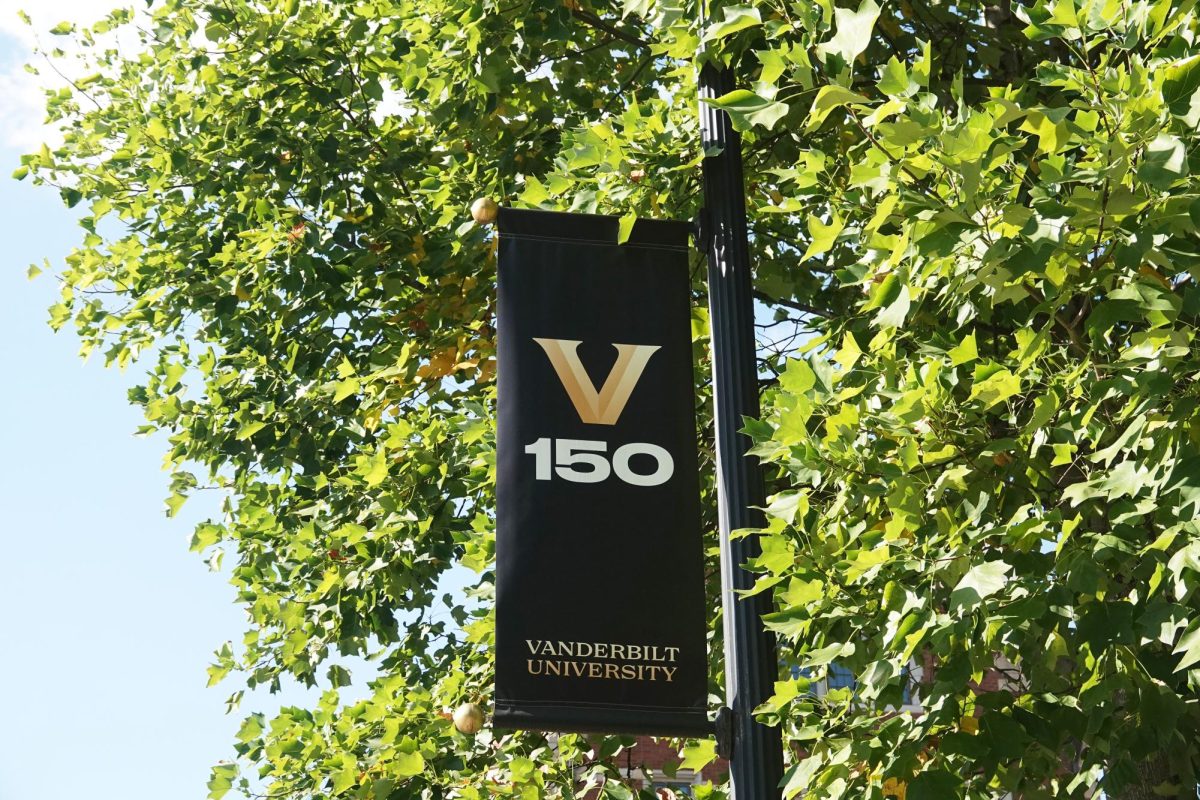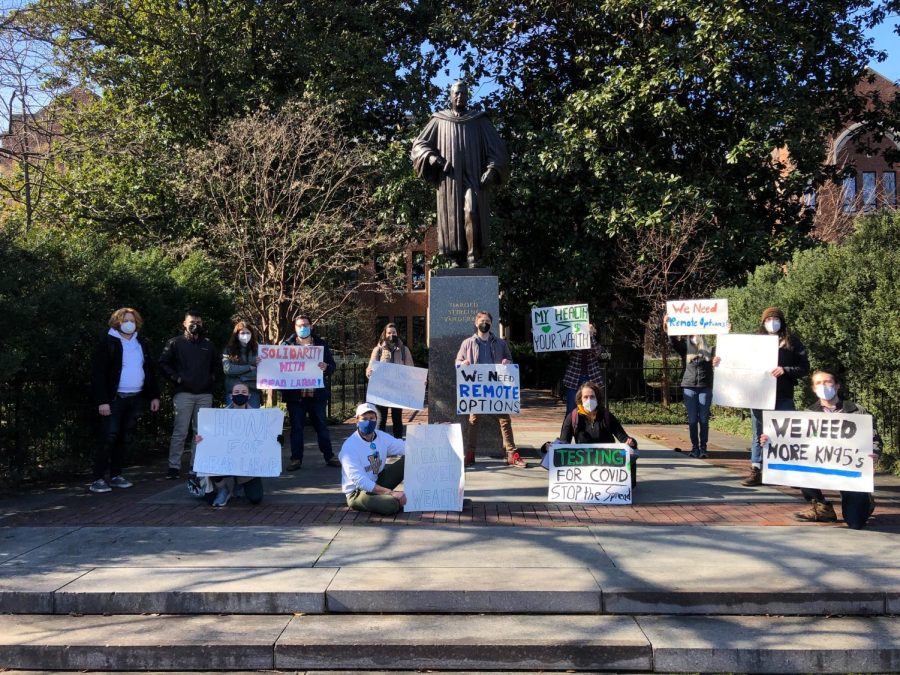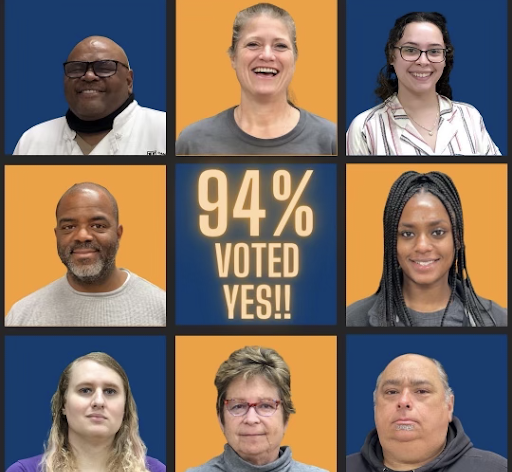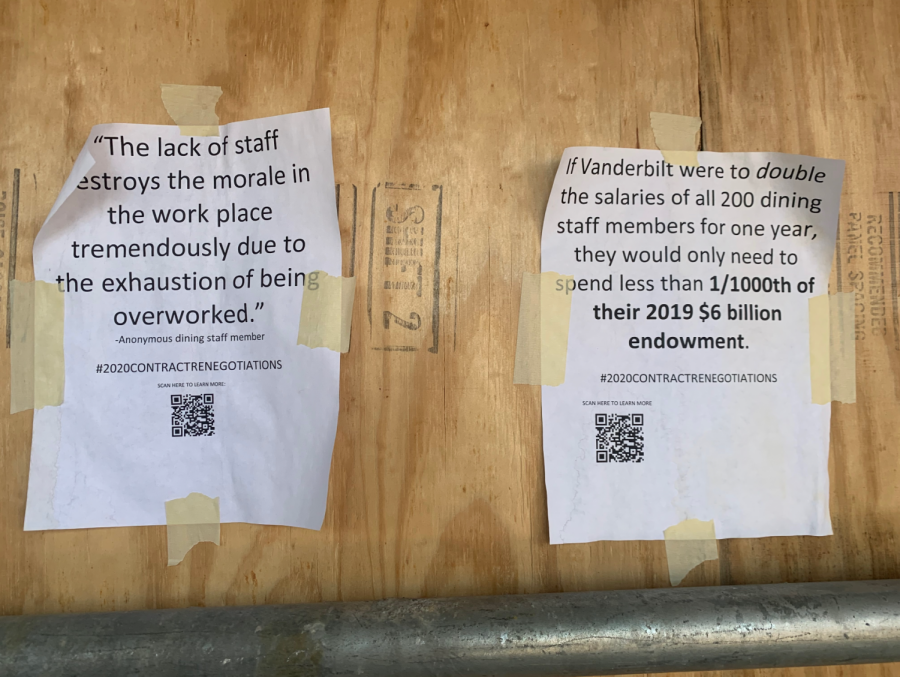CORRECTION: This article previously incorrectly stated that UAW would not file for additional graduate student unionizations with the NLRB under Trump’s incoming administration. It was updated on Nov. 17, 2024, to state that UAW has no plans to stop organizing.
Following recent efforts by Vanderbilt Graduate Workers United and United Auto Workers to proceed with a formal union election with the National Labor Relations Board, the university filed a complaint and request for injunctive relief against the NLRB on behalf of two students’ concerns about privacy violations. These individuals were part of the over 130 total students objecting to disclosing their information.
In a Nov. 1 email sent to graduate students, Provost and Vice Chancellor for Academic Affairs C. Cybele Raver informed students of a temporary restraining order from the Federal District Court for the Middle District of Tennessee issued on Oct. 30. The order was against the NLRB, in efforts to comply with the federal Family Educational Rights and Privacy Act, preventing any further action on the pending election petition. The university claimed that over 130 students notified them of FERPA concerns following two subpoenas issued by the NLRB requesting education records.
“Even after lengthy discussions, the union continued to demand that we disclose your private information, and the NLRB refused to exempt your education records from disclosure or pause the proceedings to address this vitally important privacy concern,” the email reads.
A court hearing was held on Nov. 4 as a “status conference” on the temporary restraining order, determining how the union election process would move forward. In an email to The Hustler, a university representative expressed Vanderbilt’s approach to protecting student information in compliance with federal law.
“We are pleased the federal court has granted the temporary restraining order as we have many students who feel their privacy rights are not being respected by the National Labor Relations Board or the United Auto Workers and who feel the NLRB is ignoring their rights in favor of its own processes,” the statement reads. “We are standing up for the students’ right to have their concerns heard.”
Fourth-year doctoral student Owen Hale called the restraining order an action meant to delay the union election process.
“Vanderbilt is just filing this lawsuit as a stall tactic,” Hale said. “They’re just going to file whatever arguments they think might stick or might delay the process because, at the end of the day, they just don’t want us to be able to vote on this issue at all.”
According to members of VGWU, the NLRB initially requested information about potential union members for identification and administrative purposes. The university refused to provide this information, citing FERPA violations for students’ private and personal information and access to educational records. Hale says these claims are illegitimate.
“Vanderbilt is refusing to release what is not FERPA-protected information, both because it’s directory information and because it is information requested by a lawfully-issued subpoena,” Hale said.
According to the Department of Education, an educational institution may share any information labeled as “directory information” — information in an education record that is not considered to be harmful or an invasion of privacy — without prior consent. Vanderbilt has publicly stated the information considered to be directory on the University Registrar website.
“Vanderbilt has designated the following as directory information: the student’s name, addresses, telephone number, email address, student ID photos, major field of study, school, classification and other information that would not generally be considered harmful or an invasion of privacy if disclosed,” the website reads.
Eric Wright — a sixth-year biomedical engineering graduate student — said he believes the university is using individuals’ objections as a tool to delay the union election by selecting a minority of students to support its position to prevent VGWU’s efforts.
“We’ve filed well over a thousand authorization cards of students that want this process to go forward, but a very small set of students are being used to stop us in our tracks,” Wright said.
Jade Miller, a fourth-year doctoral candidate in pharmacology, expressed frustration with the university’s claims against the NLRB, saying their actions are anti-democratic.
“Vanderbilt has chosen to attach its name to [The National Right to Work Legal Defense Foundation], a very anti-union organization, rather than let us go through a democratic process of actually voting for ourselves,” Miller said. “The fact is that if Vanderbilt actually cared about the voices of its workers and the wellbeing of its graduate workers, they would let us hold a vote instead of just cherry-picking a handful of opinions they already agree with.”
Wright said many students have voiced concerns following the presidential election, saying they believe there is a possibility President-elect Donald Trump could alter the composition of the NLRB.
“The faster we can get through this, the faster we can actually start bargaining and get the protections and increased stipends that we want,” Wright said.
Miller added that UAW has no plans to stop organizing
“Any strategic plans we make as the grad workers, we will make democratically,” Miller said. “Recently, Saint Louis University won their union election, even though they filed with the NLRB after we did, so we are confident that this is still something we can win.”

